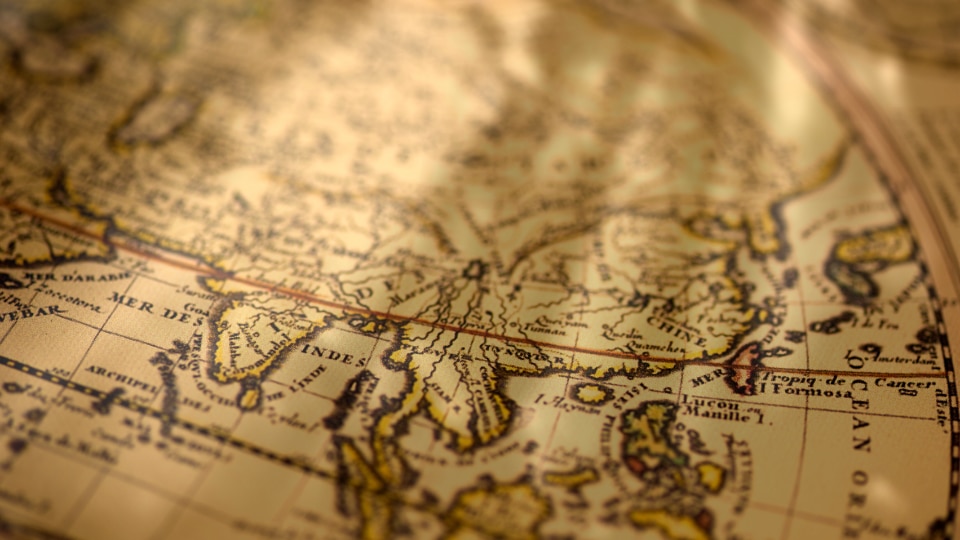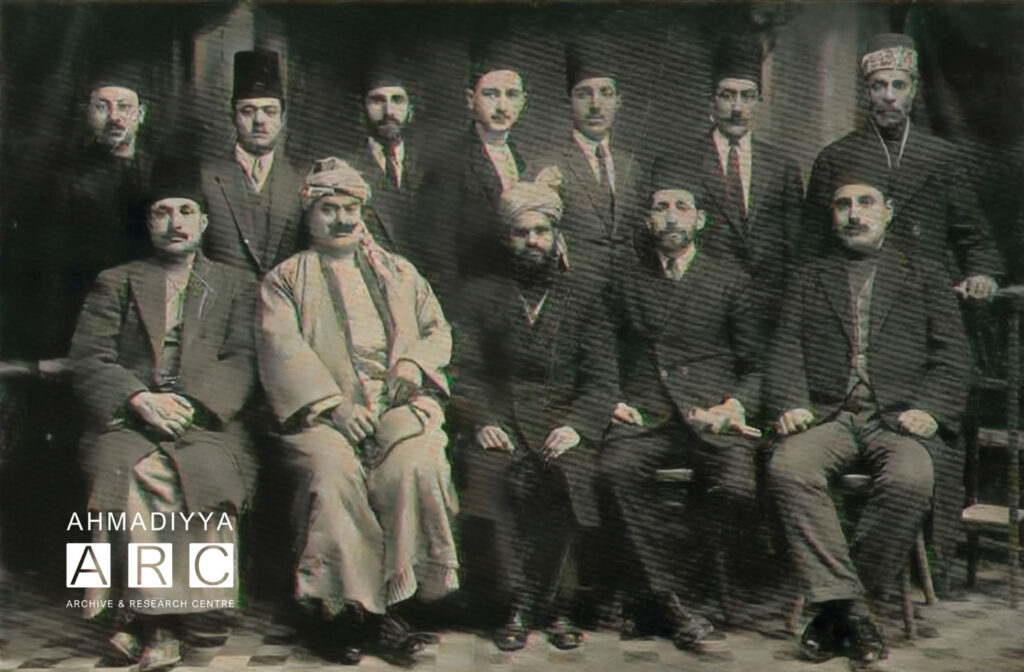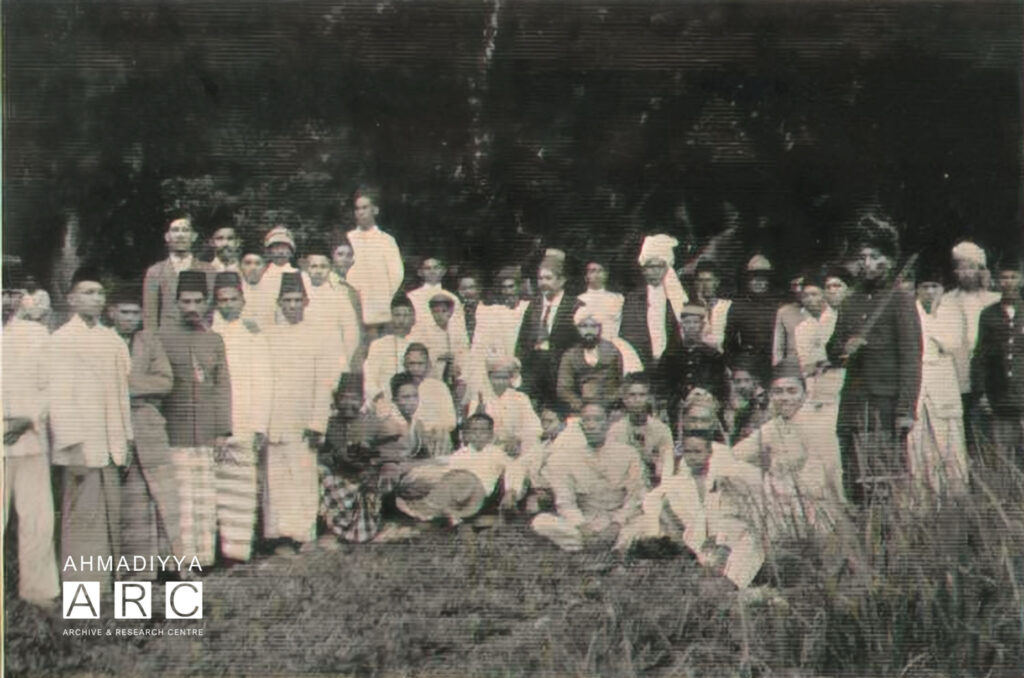A series looking at pioneer missionaries and devotees of the Ahmadiyya Muslim Jamaat who gave precedence to faith over the world.
Awwab Saad Hayat, Al Hakam

Introduction
The early years of the Ahmadiyya Muslim Community’s global missionary efforts were marked by extraordinary challenges. Missionaries sent from Qadian ventured into unfamiliar lands, often facing fierce opposition. Yet, their dedication to spreading the message of Islam Ahmadiyyat remained unwavering.
On 24 December 1927, Hazrat Khalifatul Masih IIra received two urgent telegrams in Qadian – one from Damascus, Syria, and another from Padang, Sumatra (present-day Indonesia). Both telegrams conveyed distressing news about Ahmadi missionaries confronting grave dangers in their respective fields of duty.
In Damascus, Hazrat Maulana Jalal-ud-Din Shamsra had suffered a brutal attack at the hands of an opponent of Ahmadiyyat, narrowly escaping with his life. Meanwhile, in Padang, Maulvi Rahmat Ali Sahib was preparing for a critical debate against hundreds of ulema determined to halt the progress of Ahmadiyyat in the region.
Upon receiving these reports, Hazrat Khalifatul Masih IIra called upon Ahmadis in Qadian to gather at Masjid Aqsa for special prayers. Standing on the pulpit, he shared details of both incidents, underscoring the sacrifices made by Ahmadi missionaries and the urgent need for divine help in their mission.
What followed was a deeply moving moment of collective supplication – one that exemplified the spiritual bond between the Khalifa and the devoted servants of Islam Ahmadiyyat striving in distant lands.
First telegram

Hazrat Khalifatul Masih IIra announced in Qadian that Ahmadi members were to gather at Masjid Aqsa at 12 o’clock for prayers. Huzoorra arrived at the mosque precisely at 12 and delivered a brief address while standing on the pulpit. He informed Ahmadis that he had received two telegrams from missionaries in different regions. Since they were of national importance and related, he said he had gathered friends there to share them and pray together.
One telegram was from Syria, stating that Maulvi Jalal-ud-Din Sahibra, a missionary in Syria, had been attacked and wounded with a dagger. The details, Huzoorra said, about the nature of his wounds – whether they were minor or severe – were unclear. However, in such cases where the attacker’s intention was murder, it was assumed they would not have held back in trying to inflict serious injury. Huzoorra said that since detailed information had not yet arrived, it was feared the wounds might be severe. Huzoorra added that though it was possible the wounds were not serious, when flames of anger and fury were ignited, there was always the danger of a second attack if the first failed. Huzoorra further said that since we were considered weak, we could not defend against such attacks with force. We had only one resource: to pray to Allah that He protected our missionaries’ lives and kept them safe from enemy attacks.
For some time, the situation in Syria had been deteriorating. Several of those who had become Ahmadi had received death threats. Maulvi Jalal-ud-Din Sahibra had written about one Ahmadi brother in Damascus, a very sincere Ahmadi, stating that he had been stopped outside the city by three or four men armed with daggers who said, “Either renounce Ahmadiyyat, or we will kill you.” Similarly, he had written about other Ahmadis receiving death threats. Huzoorra said that in last week’s mail, it had been mentioned that the ulema had declared, “If the government does not do anything about the Ahmadis, we should handle them ourselves,” and they had urged the government to take action against Ahmadis, but the government had not intervened. One reason for this was that Syria was currently under French governance, which did not have any personal enmity or hostility toward Ahmadis merely for being Ahmadi.
Maulvi Jalal-ud-Din Sahib’sra previous reports had indicated that the mullahs were planning a murderous attack on him.
Second telegram

Huzoorra further shared that he had received another telegram from Padang in Sumatra. Maulvi Rahmat Ali Sahib had been sent there by Jamaat for preaching. A major debate had been arranged there. Several hundred ulema had gathered from the entire region. By Allah’s grace, the Community had become established there. Several influential and wealthy people had joined. When the mullahs saw the Community growing stronger, they first tried to make the government suspicious of Ahmadis. They accused Ahmadis of being rebels against the government and argued that they shouldn’t be allowed to stay in the country. But the government paid no attention to their claims. Now, they had arranged this major debate.
Government officials were also set to be present during this important debate, and an official report would be prepared.
Huzoorra added that around 300 ulema were expected to gather, and the debate would last for five days. He urged Ahmadis to consider the difficulties of a missionary who was far from the Markaz, in a different country, where neither complete Jamaat literature nor necessary reference books were fully available, and where opponents, when numerous, created disturbances and applied pressure.
Hence, Huzoorra said, our Community’s missionary, Maulvi Rahmat Ali Sahib, was alone there while hundreds of mullahs had gathered, so special prayers should be offered for his success. That region had great potential for the progress of Ahmadiyyat. There were forty million Muslims eager to learn the truth. This was why there had been rapid progress in the region.
Then, Huzoorra said that Ahmadis should pray for both matters: first, that Allah grants healing to Maulvi Jalal-ud-Din Sahibra and protects him in the future; and second, that Allah grants victory to Maulvi Rahmat Ali Sahib in the upcoming debate.
Al Fazl, 3 January 1928, reports that after this, Huzoorra sat facing the qiblah in the mosque’s mihrab, and the entire gathering also faced the qibla. Prayers were then offered, continuing for 15 minutes.
Conclusion
These events reflect the sacrifices Ahmadi missionaries made for the cause of Islam, facing danger with unwavering resolve. Hazrat Khalifatul Masih II’sra call for prayers united the Jamaat, showing how Khilafat remains a source of guidance and strength and reminding us that in times of hardship, our true reliance is on Allah the Almighty.

